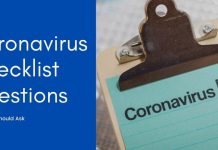Getting your first job through campus recruitment is a matter of pride. The ability to find a good job while still being in college, projects a high value of the candidate. College placements are the risk-free way of finding jobs.
Most of the companies land in colleges based on performances from previous recruitment from the college and some companies even lower their recruitment standards during campus recruitment.
It is in fact easier to land a job in campus recruitment than it is to find one on your own.
The competition during campus interview will only be from your peers, where you can judge your ability to get the job fairly accurately, but outside the college, you will have to face stiff competition from both experienced candidates and freshers, and your chances of getting your dream job is unpredictable.
Tips to Prepare for Campus Interviews:
 Get your Basics Right:
Get your Basics Right:
It goes without saying that your academics must be strong. Make sure you learn your basics. You ought to know the ins and outs of your domain and must also be aware of any current affairs regarding it.
The technical round interviews at campus interviews are aimed at testing the knowledge on base concepts on which your domain rests upon, since the candidates will have to go through an initial training period if they get the job.
Keep tabs on what the company is all about, and learn everything you can about the company. Little things like knowing who the current CEO, Founder(s) is very important.
Next, you need to have a fairly good idea about the position you will be interviewed for. This knowledge can either make or break your interview in some cases, it is better to be prepared for the worst.
Ensure that you have a good knowledge about the basic principles in your domain. It is advised to brush up on your first year notes/syllabus as an exercise.
If possible, try to get hold of model recruitment exam questions from that company.
Keep in touch with any of your seniors who work in that company to learn about their recruitment experiences. Make sure you meet the requirements the company has set.
Take time to follow through all the specifications one has to follow and check if you meet all the criteria set by the company. Getting references from your lecturers and any prior work experience will also work in your favor.
Customize your resume:
A good resume will instantly separate you from the crowd, and get you noticed. Make sure you spend some time in writing your resume and not just filling out a preset template. You should customize your resume depending on the company and the position you are applying for.
Do enough research and look into what the job description expects from the candidate in order to create a well tailored resume.
Nobody knows your strengths and weaknesses better than you, so do not exaggerate or underplay your strengths and weaknesses, and only provide details that support your efficiency in the job position.
Don’t pretend to know about a domain which you have no experience in. Interviews, unlike exams, are aimed at testing what you know rather than what you don’t know.
The interviewer is more keen to get to know about the extent of knowledge you have regarding a particular subject to have a better idea about your skill set. Always highlight the subjects you are most confident about.
The main purpose of a resume is to get you a job interview, and although this becomes redundant in a campus interview, a well prepared resume will still stand testament to your efficiency and project a good image of yourself. Hence keep updating and refining our resume until you find it to be as perfect as possible.
Get the Right Things in your Resume:
Now that you know what makes a good resume, Here are a few tips on how not to write a resume.
A resume must strictly contain professional information, and the only personal information your resume must contain is your biodata.
Even seemingly redundant information like your hobbies and interest must have a professional outlook and must direct towards your improvement in your professional field.
For Example, If you are applying for a position as a developer, your resume will be taken more seriously if you list developing apps, or coding as our interests instead of things like watching TV/ movies. Grammar and spellings are also very important, so ensure to always proofread your resume before turning it in.
Be Confident:
 Of the multiple rounds of interview, the last round will usually be an HR round, where you will be required to face an HR personnel for a live interview.
Of the multiple rounds of interview, the last round will usually be an HR round, where you will be required to face an HR personnel for a live interview.
The HR will look for signs of confidence and your ability to get along with others, to follow orders, and your performance under pressure.
Keep calm and remember that it is just an interview and you are speaking to just another person. You also need to keep your nonverbal communication in check.
Staying calm and composed alone will take you a long way in terms of your body language. A well fitting dress and grooming goes a long way in indicating that you are serious about this job interview.
Maintaining eye contact is a sign of fearlessness and confidence. Do not stare or give an assertive look, but maintain eye contact while you speak and when the interviewer speaks to you.
Avoid touching your face/ hair during the interview, this comes off as fidgety and as someone who is unsure of himself/ herself.
Smile is another important nonverbal communication that speaks a lot. It not only reassures the interviewer, but smiling will also put you at ease and reduces your tension. A smiling person is deemed more friendly and approachable, and the interviewer might be informal with you.
You don’t have to answer every question right away, if you are unsure about the answer and ask the interviewer to give you a few extra seconds to think before you answer. You ought to be confident in yourself even then.
If you do not know something, do not be afraid to admit it, never lie to the interviewer about something you don’t know, they are trained to look through false claims and it might even cost you this job.
Ask questions:
 Asking the interviewer questions can help them take notice of you from the rest. Prepare a few questions beforehand, and these must be strictly professional.
Asking the interviewer questions can help them take notice of you from the rest. Prepare a few questions beforehand, and these must be strictly professional.
Small talk, or personal questions might not be encouraged, instead ask about the working environment, your salary package, the training period etc.
On-Campus Interviews are of Two Types-
1) The company is either looking to fill specific positions
2) They are looking to fill openings in the company.
It is quite impossible to find out what they are looking for before the interview. Hence, asking the interviewer will give you a better idea about what the requirements are.
This is sure to impress the interviewer and they will take you more seriously. An interview must be a two way process for it to be a pleasurable experience. This will help both you and the interviewer to know about each other and make the best of it.
Do not be discouraged:
Don’t be discouraged if you do not get through the interview. Learn from your mistakes and prepare better for your future interviews.
Losing out on one interview does not mean much, and the experience of having attended an interview makes you wiser and should give you the confidence to perform better in your upcoming interviews.











































